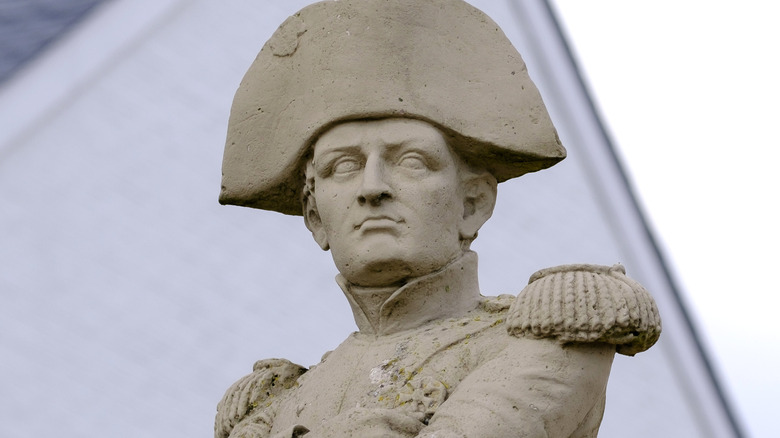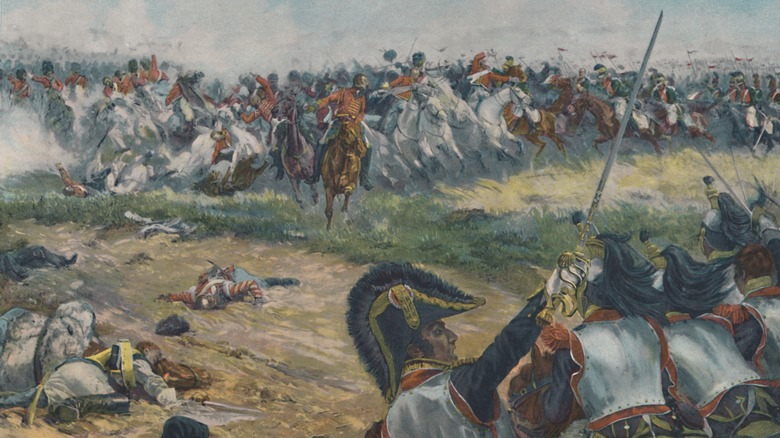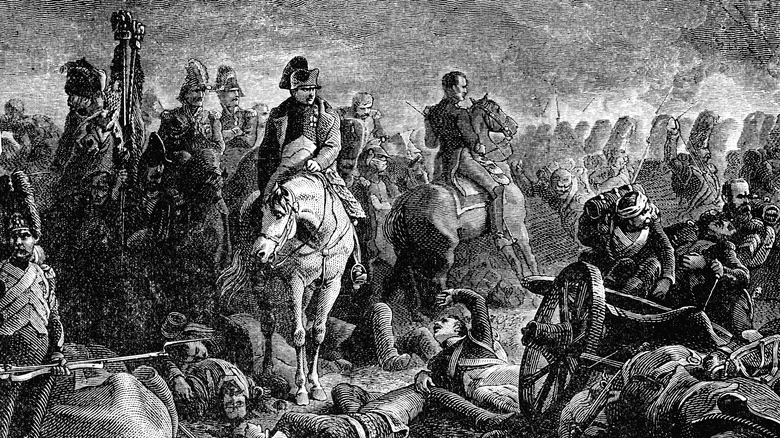Remains From The Battle Of Waterloo Were Discovered In A Truly Bizarre Place
In 1815, the forces of French Emperor Napoleon Bonaparte suffered their final and greatest defeat at the hands of the Allied army, and thousands more Prussian forces opposed Napoleon's imperial push throughout the continent (per CNN). Though estimates vary, tens of thousands of men died from both sides of the conflict near Waterloo, a small town close to Brussels, Belgium. Strangely enough, despite that high death toll, very few complete human skeletons have been found, as The Archaeologist explains; some reports state only two, via CNN.
More than 200 years after Waterloo, Belgian researcher Bernard Wilkin from the State Archives of Belgium spoke on that very topic: Why so few human remains or mass graves related to the battle have been discovered so far. After his talk, a local man approached him: He had something in his possession that the Waterloo expert would likely want to see. As Wilkin later recalled, the man, who chose to remain anonymous, told him (via NBC News), " ... You should know that I have Prussians in my attic," or the partial skeletons of men who fought and died in Napoleon's final defeat. Naturally, Wilkin was taken aback by the news, he later said.
Waterloo bones may have been used as fertilizer
As The Archaeologist writes, the remains of men who fought and died at Waterloo were possibly ground and used as a type of fertilizer, but no one knows for sure. According to NBC News, bones may have also been sold to be ground up and used in the sugar purification process. Otherwise, mass graves of soldiers who died at Waterloo from either side of the conflict were likely looted for similar reasons. Though few complete skeletons are known to survive, other partial skulls and skeletons — and even the remains from horses — have so far been recovered, as the BBC reports.
Still, any and all bones from the Battle of Waterloo remain an exceedingly rare discovery. So Wilkin was intrigued by the prospect that a local resident may have a trove of Prussian remains hidden in plain sight the whole time. The man was a collector of Napoleonic memorabilia, and he even ran a small private museum, based on CNN reporting. But as far as the human bones he had in his collection, they stayed off-limits. The anonymous man, Wilkin said, had been storing these rare objects in his attic for decades. As he advanced in years, he decided it was finally time to let the world know what he had (via NBC News).
The path led to at least six more British soldiers
As reported by CNN, the man who approached Wilkin did indeed have the remains of at least four Prussian soldiers in his attic, with other artifacts found near where they were discovered. These confirmed that they were Prussian or possibly French (via The Times). Some skulls showed signs of traumatic injury, the likely cause of the soldier's death. "One of the skulls is deeply damaged by a sword or a bayonet, so it was a very brutal way of dying ... At the end of the day he gave me all the boxes to study. One of his requests to me was to bury them in a dignified way," Wilkin said.
Researchers hope the bones may offer DNA to help identify living relatives. Using modern digital facial reconstruction, it may also be possible to know what the soldiers looked like. Per CNN, after allowing Wilkin to see the remains, the man who owned them also said, " [B]y the way, I have another friend who has probably four British soldiers." These men allegedly fought and died at Waterloo, and their remains were illegally discovered through metal detecting. Following that lead, it turns out that man did, indeed, have six, as NBC News explains. On seeing actual remains from Waterloo, Wilkin said, " ... [O]ne particular skull with a massive facial trauma depicts for the first time how violent the age actually was."


